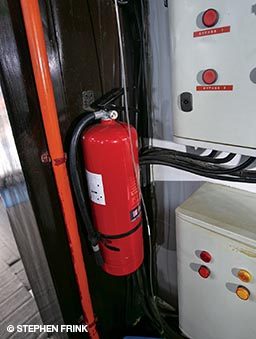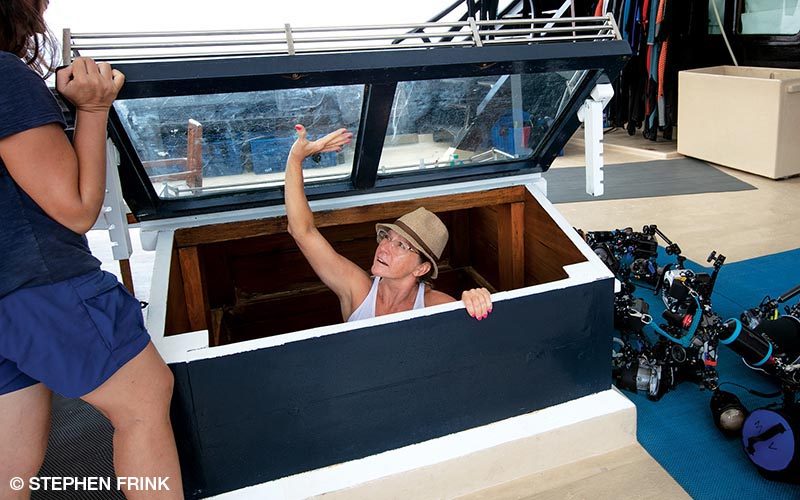Two recent tragic boat fires in popular dive regions have once again illustrated that not all accidents happen during a dive. Although it appears that the fires started similarly, it will require in-depth investigations by the authorities to determine the actual causes. What both accidents have in common is that there were casualties and the fires started at night.
Many divers wonder how to protect themselves against something over which they have little control. This article provides some background and advice to travelers who intend to take a dive boat excursion.
Vessel Fire Safety
While rare, fires on dive boats can start from a variety of causes, including gas leaks, electrical faults and ignition of volatile fluids.
Boat owners are usually required to comply with local laws and regulations governing fire safety. They are also responsible for performing a fire risk assessment that focuses on possible causes, locations and the spread of fires. They need to mitigate the risk factors and develop and implement emergency action plans, including regular fire drills.
Passengers should consider the following:
- Insist on a safety briefing, which includes life-jacket stowage instructions and what you should do in case of a fire.
- Check that escape routes and emergency exits are accessible and useable. Familiarize yourself with the operation of any doors or hatches, especially for accommodations that are below deck.
- Confirm that there are accessible and inspected portable extinguishers or some form of central overhead fire deluge system.
- Check if fire alarms and detectors for flames, smoke and carbon monoxide are installed and working, and ask when they were last tested.
- Find out if the staff maintains a watch system on board. A crew member should be awake and on duty at all times to respond to emergencies and ensure boat safety. Know where to find this person. If you notice that they are asleep or not present, wake them up or find any available crew member. The lack of a watch is a serious matter that you should report to the crew member in charge or even the captain, depending on the size of the vessel. A watch system is especially important for fire safety, and it might be a Coast Guard requirement, depending on the location.

Evacuation Procedures
A fire can spread quickly. Smoke can swiftly reduce visibility to zero, and the toxins in the smoke can rapidly debilitate anyone. The heat generated can cause significant burns and prevent access to exits. Most victims in a fire succumb to smoke inhalation rather than burn injuries. As soon as a fire is detected, everyone should react immediately and appropriately.

- Wake others, or activate the fire alarm as soon as you notice any fire or smoke.
- Don’t lose time searching for personal belongings. Even 30 seconds can make the difference between life and death.
- Remain calm.
- Don’t take suitcases or bags with you. They can hinder you and block the escape routes, making evacuation difficult or impossible for you and others.
- Help others during evacuation where possible and safe.
- Follow the crew’s instructions. They should be trained and equipped to contain a fire, rescue passengers and ensure your safety.
- If you see a fire inside a room, avoid opening any door or window. Fresh air adds oxygen and will rekindle a fire or increase its development and intensity.
- Never reenter a vessel that is on fire.
Other Considerations
Fires are a rare occurrence, but the consequences may be dire and often fatal. Consider the following suggestions when traveling:
- Fire safety education and training in emergency procedures will be useful when dealing with a fire and help you to keep calm and remain focused.
- Keep a small (waterproof if on a boat) bag or container next to your bed. It should be just big enough to hold your passport, wallet and any medications you might need, but small enough that it won’t limit your movements or slow down the evacuation.
- If you wear glasses, keep them within reach so you don’t lose time looking for them during an evacuation.
- Do not charge batteries from flashlights, cameras (especially video cameras and lights), scooters and other large power consumers or charge devices such as a laptop, tablet or cellphone in your cabin when you are not there or while you’re sleeping. This is especially important if there is no smoke alarm.
- Do not overload an electrical outlet with too many devices. This can lead to overheated extension cords, adapters or power strips, or it can cause an electrical overload, either of which can cause a fire.
- Pay special attention to your surroundings when smoking on board a dive boat. Flammable materials such as fuel, cleaning solvents and compressed oxygen are often present in restricted areas.
- Since the recent boat fires, some divers are purchasing portable carbon monoxide or smoke monitors for use in their cabins.
- If you are concerned about fire or smoke emergencies, consider bringing a small portable smoke hood to protect your eyes and lungs. Boat owners should consider providing them on board as well.

If you are traveling to dive, remember that fire risk is a concern not only while you are on the boat but also when you are in hotels or visiting dive centers. Fire safety and preparedness are important throughout your trip, both on board and onshore.
Are you a dive professional or dive operator? Participate in DAN’s Hazard Identification and Risk Assessment (HIRA) program to reduce the risks you might encounter in your dive business.
© Alert Diver — Q2 2019